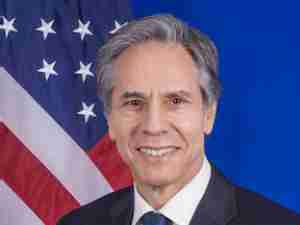Nordic Leaders Seek EU Pact Over Post-Brexit Power Play
By: Peter Levring and Amanda Billner | Sep 28 2016 at 09:45 AM | International Trade
The Nordic members of the European Union have vowed to work closer together to make up for the potential loss of a key free-market ally, the U.K.
Meeting Wednesday in the Finnish island of Aaland, the leaders of Sweden, Denmark and Finland agreed to explore ways of cooperating on some of the crucial battles they will face in Brussels.
“We all agree that we will lose a like-minded partner in the European Union on issues like the single market, free trade, keeping a tight EU budget, security and so on,” the summit’s host, Finnish Prime Minister Juha Sipila, said in an interview. To compensate for the loss, Nordic leaders will have to “be more active together,” he said.
At the same time, the EU should focus on practical issues such as migration and the economy rather than pursue grandiose plans for a federal state, the leaders said at their annual get together in Aaland, a Swedish-speaking archipelago off Finland’s western coast.
With Britain expected to follow up on the outcome of the June 23 referendum, in which a majority voted to leave the EU, the bloc’s three Nordic members are set to lose a close partner on issues ranging from energy to financial regulation. To euro outsiders Sweden and Denmark, that’s particularly troublesome. Both countries, like Britain, have large financial sectors relative to national output and must deal with the European Central Bank on matters of banking regulation.
EU Budget
Although Britain isn’t expected to formally leave the EU for years, top officials are already beginning to worry. One particular source of concern involves payments into the EU budget.
“Without the U.K. there will have to be a completely new discussion on the next long-term EU budget,” Swedish Prime Minister Stefan Loefven said. “Our position is clear. If you have less income you should also have lower expenditure.”
Although the Nordic leaders stopped short of forging an explicit EU alliance while in Finland, they said their governments were already cooperating more closely. Their ambassadors in Brussels consult each other ahead of important meetings on a regular basis.
“We don’t have to establish anything new and formal,” Sipila stressed, “but we have to be careful and speak more about EU issues.” One area where Sipila sees plenty of scope for cooperation is “Brexit preparations.”
Berlin Meeting
Sipila, Loefven and their Danish counterpart, Lars Loekke Rasmussen, met in Berlin last month with German Chancellor Angela Merkel and their Dutch colleague to discuss how to counterbalance the growing power of less fiscally prudent EU members like France and Italy.
“The political debate isn’t just about counting votes,” Rasmussen said in an interview. “It’s also about setting the tone and agenda and some countries have been hiding behind the U.K. while it did the fighting.”
“When that strong voice is no longer there, others have to step up,” Rasmussen added, listing the Nordics, Germany and the Netherlands as natural partners for Denmark.
In the meantime, Nordic nations including non-EU member Norway are keen to keep Britain, a top export destination, as close as possible to the EU’s internal market.
The idea that Britain might be able to remain a member of the common market without the freedom of movement of labor that goes with it appeals to populists in the Nordics, which would be keen to copy such an arrangement.








